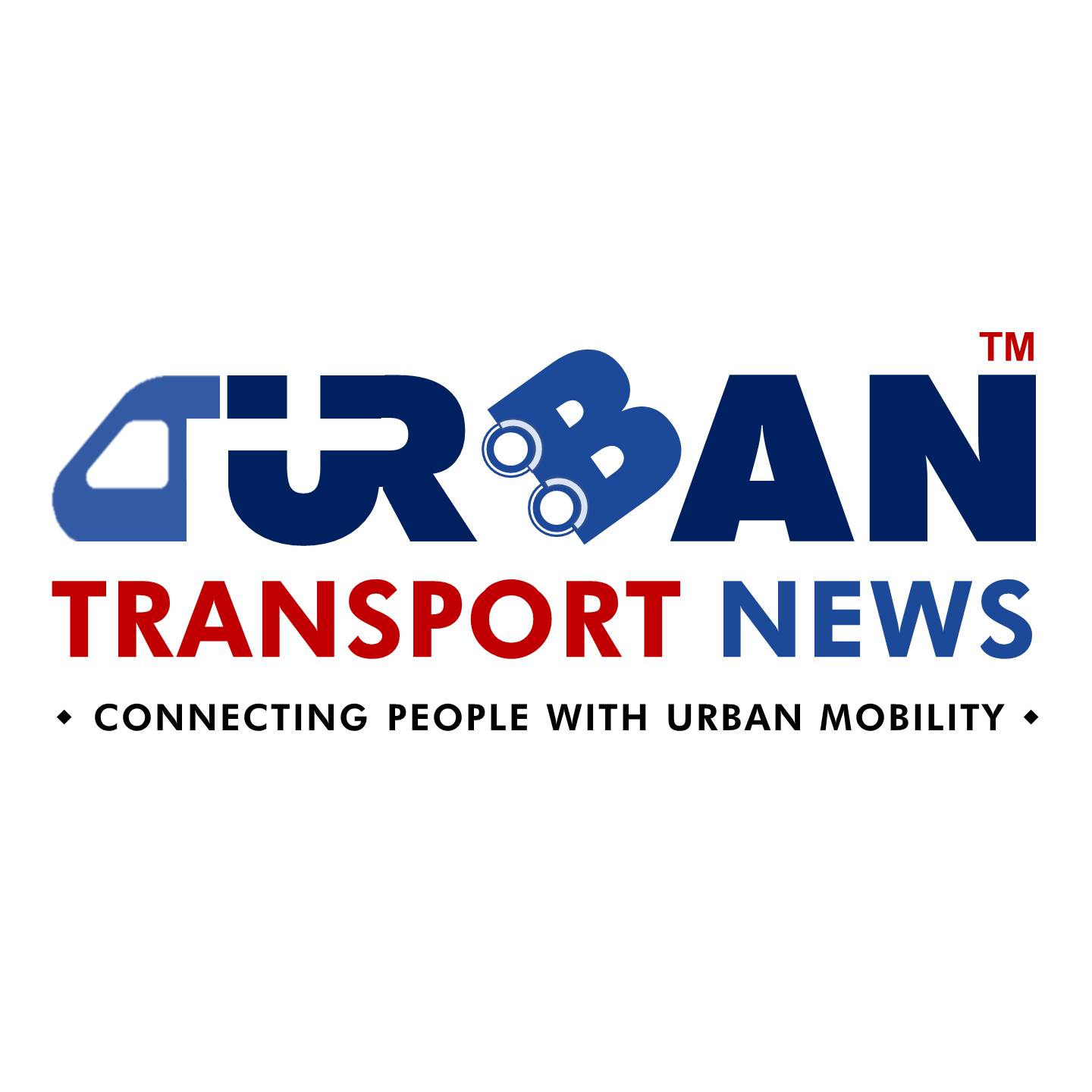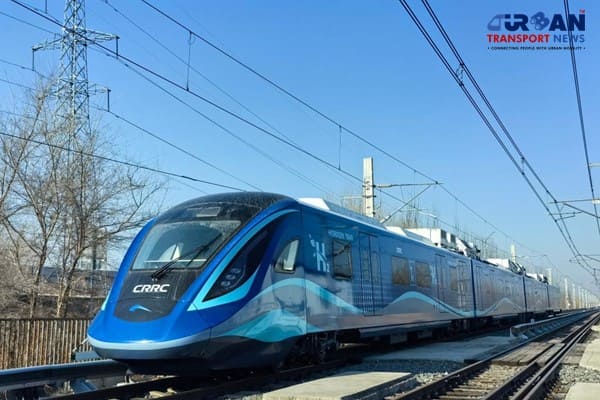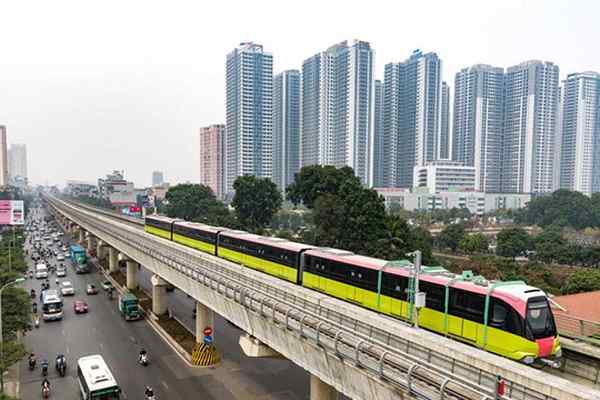 Vietnam plans new metro rail lines to replace its BRT systems in Hanoi
Vietnam plans new metro rail lines to replace its BRT systems in Hanoi  Revolutionizing Indian Railways: The Rise of Indigenous High Speed Bullet Trains
Revolutionizing Indian Railways: The Rise of Indigenous High Speed Bullet Trains Ayodhya deployed Gobbler Litter Buster to keep the City clean
Ayodhya deployed Gobbler Litter Buster to keep the City clean BMW's Emissions Investigation: What Does It Mean for Drivers?
BMW's Emissions Investigation: What Does It Mean for Drivers?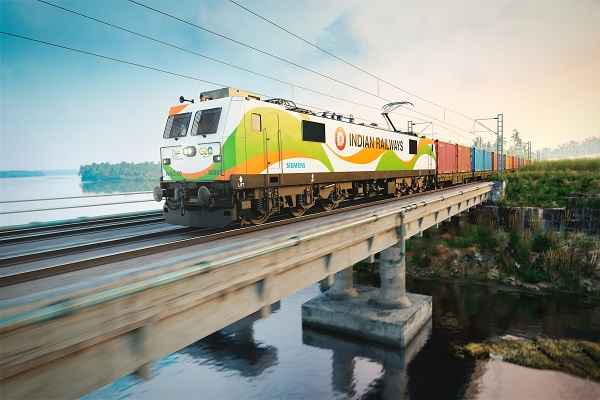 171 Years of Indian Railways: A History of Innovation and Progress
171 Years of Indian Railways: A History of Innovation and Progress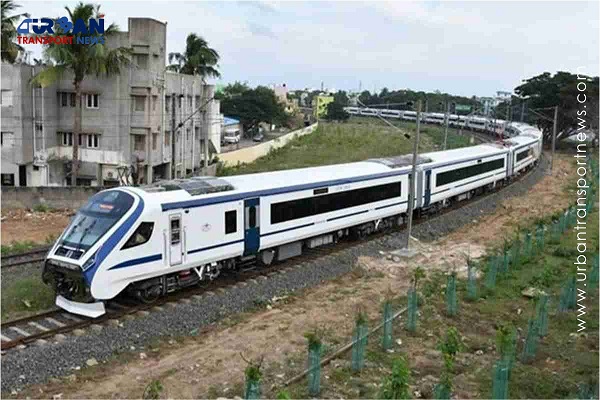 Vande Bharat Express trains carries over two crore passengers since their inception
Vande Bharat Express trains carries over two crore passengers since their inception BPCL partners with Noida International Airport to construct ATF Pipeline
BPCL partners with Noida International Airport to construct ATF Pipeline What are the Railway Development Plans in BJP's Manifesto for 2024-2029?
What are the Railway Development Plans in BJP's Manifesto for 2024-2029? Latest innovations shaping the urban mobility sector across the globe
Latest innovations shaping the urban mobility sector across the globe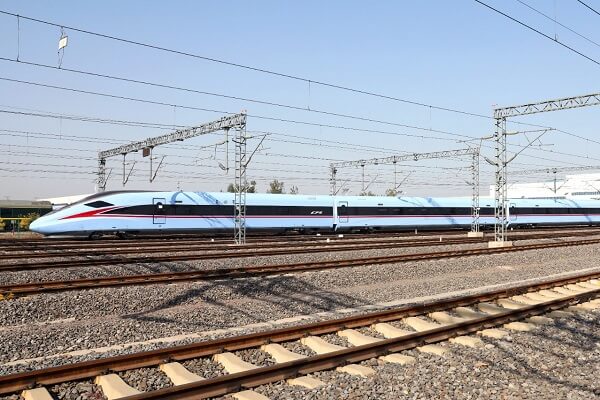 California issues RfP for procurement of High Speed Bullet Trains
California issues RfP for procurement of High Speed Bullet Trains
How will blockchain impact the future of the automotive sector?
 (Image Copyright: Ümit Yildirim/Source: Unsplash]
(Image Copyright: Ümit Yildirim/Source: Unsplash]
The transportation industry has evolved considerably over the years, and incredible ideas that seemed possible only in a fictional world have now become a reality. Electric cars and autonomous vehicles are outstanding innovations designed to improve traveling, making it more convenient and faster. However, in urban areas, commuting comes with significant environmental and economic costs, leading to massive greenhouse gas emissions. Since India has a high population, the country has developed a solid mass transit system.
However, some issues still need to be resolved, and the adoption of blockchain is the ideal solution. While many people associate it with cryptocurrency, blockchain has applications in multiple industries. The financial sector implemented this technology a couple of years ago, benefitting significantly from it, and nowadays, automotive businesses are embracing blockchain, too, as they start discovering its perks. Let's further explore this topic.
Blockchain and transit systems
Blockchain is a decentralized database and, at the same time, a technological innovation that can help lower costs and mitigate risk by introducing new business models in transit systems. This technology can boost market transparency, immutability, efficiency, and consensus. Embracing public transit is the key to efficiency and sustainability in societies. People no longer see public transport as outdated, and that's mainly because of the campaigns that have promoted its role in minimizing pollution.
Blockchain powers logistics, tourism and the future of transportation, bringing multiple benefits to transit systems. For instance, this technology has the potential to facilitate ridesharing. Indian transit systems depend on stakeholders like governments, local and national authorities, infrastructure owners, commuters, etc. However, these stakeholders have personal interests that negatively impact the transit system's success. That's where blockchain technology can help, as it provides new ways to boost collaboration between those involved in the transportation systems. This results in a better outcome for travelers, reducing costs and lowering the environmental impact.
Blockchain applications in the automotive industry
Some automotive businesses have understood the importance of adopting blockchain to improve the future of transportation. Here are some companies that have embraced the technology:
- Marelli Automotive Lighting has implemented blockchain to boost the company's automotive supply chain management. This is possible through a distributed peer-to-peer network connecting automakers and global suppliers.
- The BMW Group uses blockchain to ensure components' traceability and the procurement of raw materials in the international supply chain process.
- Cruise LLC seeks to use blockchain to collect data from automobile sensors and develop a reliable map for self-driving cars.
These are only a few examples of companies that opened themselves up to the idea of blockchain, but many car companies currently accept crypto as a payment method for their services. For instance, luxury car brands allow you to buy a car with Bitcoin. Similarly, Tesla accepts Dogecoin. More companies will likely adopt blockchain in the near future in one way or another and embrace popular cryptocurrencies like Bitcoin and Ethereum. That would boost companies' client base, as people are increasingly learning where to buy ethereum and how to trade this currency most efficiently. Customers prefer multiple payment options, and since many people buy ethereum and other digital assets nowadays, businesses would highly benefit from adopting it.
Challenges in the automotive sector and how blockchain can solve them
The automotive industry is adopting green, smart and energy-efficient technologies. However, these new trends pose challenges, hindering automaker's processes. Let's discuss these issues in detail.
Insurance frauds
Insurance frauds are a frequent issue in the automotive sector; scammers can either submit a fake claim or multiple ones that often go undetected. Unfortunately, this translates into financial losses for auto insurers.
However, blockchain can solve the problem by sharing data on drivers' behavior. This helps insurance firms establish premiums by looking at the claims history. Manual processes can be time-consuming, but blockchain simplifies all the paperwork. Since it's impossible to modify records on the blockchain, fraudulent claims will quickly be identified. Put simply, combining blockchain and IoT makes the claims management process significantly easier.
Car sharing
When it comes to the future of transportation, there's no doubt that car sharing will be a part of it. But even if this technology is evolving rapidly, car sharing services have their own limitations and flaws. In many instances, shared vehicles did not respond to identification keys on mobile devices, making one wonder how reliable these systems are.
Luckily, blockchain can improve them because it guarantees immutability regarding car rental history. This means if an accident occurs, the carsharing company can identify the driver at the moment of the accident. Smart contracts also enhance car sharing by automating tasks like fee calculation.
Monitoring vehicle history
Suppose there are reports of a fault in different vehicles; after leaving the dealerships, they can't be tracked down, making the recalling process complicated and time-consuming. Without a proper tracking system in place, the risk of fraud in the spare parts market increases. For example, tracking stolen cars and odometer parts is very challenging because you can't look into the ownership history.
Using blockchain can help track a car's history from the beginning to the end of the dealership, as the technology stores data like checks, mileage, accident damages, and ownership details. Moreover, blockchain benefits car buyers, too, allowing them to ensure the vehicle is legal and perfectly maintained.
Counterfeit spare parts
Counterfeits have always been a threat to automobile parts manufacturers, and there doesn't seem to be any system that can resolve this problem. Without a solution, many fake parts manufacturers enter the market. And monetary loss isn't the only repercussion – drivers' and passengers' safety is also at risk. This also affects the image of automobile brands.
With blockchain, transportation companies no longer have to worry about these aspects. If everyone uses the same supply chain, the risk of counterfeit parts is significantly reduced. Plus, this technology allows manufacturers to identify inefficiencies in the supply chains and take steps to fix them. Blockchain and IoT together enable reliable monitoring that eliminates false parts in the market.
The bottom line
Blockchain is undoubtedly a game-changer in the financial and business world, but it can also result in a better future for the automotive industry. That is because of its power to improve collaboration and information sharing. Once companies in transit systems implement this technology, it won't take long until the results become evident.




